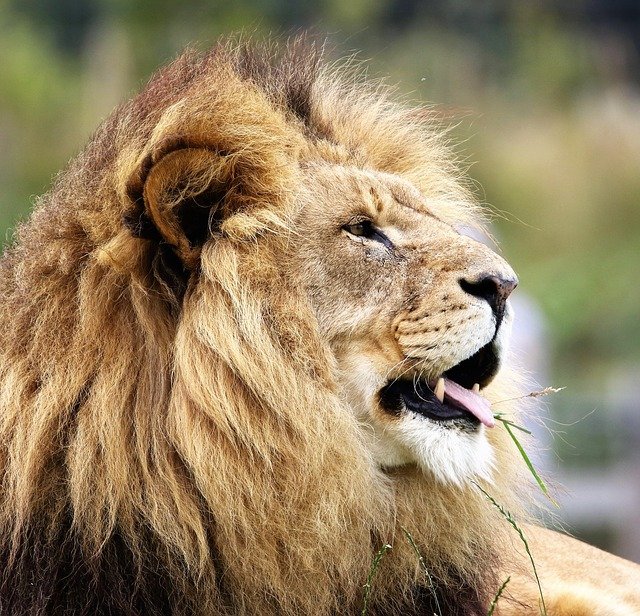New Rules of Safety: The Lion, the Switch and Nairobi: how our eyes turn us blind
 As I write this I’m in Nairobi, the fantastic capital city of Kenya. Arriving after an easy long-haul flight from Geneva, with plenty of good in-flight movies, I’m happy to be here. After all, Nairobi is famous for being the only city on our planet that has a game reserve actually within the city limits.
As I write this I’m in Nairobi, the fantastic capital city of Kenya. Arriving after an easy long-haul flight from Geneva, with plenty of good in-flight movies, I’m happy to be here. After all, Nairobi is famous for being the only city on our planet that has a game reserve actually within the city limits.
Ah yes, just a few months ago a lion escaped from the park and a film was posted on YouTube of it wandering around the city before it got fed up and decided to play tag with an elderly gent on his way down to the shops.*
Landing at Nairobi’s International Airport is surreal. Especially in daylight. Giraffe, herds of wildebeest, zebra and a whole bunch of wild animals I can’t put a name to maraud across the plains below the 747 in which I safely sit.
The feeling of awe doesn’t change as I enter the airport. Vast empty spaces – perhaps lying in wait for a rapid influx of visitors – stand out conspicuously. And then, nothing. As I step out into the humid warmth it’s eerily quiet. Rounding the corner and it’s suddenly all over me – crowds, noise, crowds and more noise. Where’s my cab?! As I stand on the kerb a 10 year old kid wanders past and asks me if I want some marijuana.
Finally, in the hotel, I check in at home. Re-telling the stories of my travels, my other half – audibly concerned – asserts that it’s ‘not safe’ for me to leave the hotel and begs me to stay put.
She – like many of us – has fallen victim to the ‘salience effect’, a phenomenon that ensures that we pay more attention to certain features than they may actually deserve. She’s already subconsciously picked out what her brain feels are the salient points of my trip so far.
Completely missing my splendid in-flight movie, the bump-free flight, the awesome vistas below the plane, and the exciting hubbub in the street. The salient facts for her – wild animals on the loose and drug-addled kids – are front of mind. And she’s not alone. As humans, we always recall the undesirable exceptions more easily: they’re particularly salient.
Nobel-prize winner Daniel Kahneman and his pal Amos Tversky realised that we place (often unnecessarily) heavier emphasis on salient information. This explains why boards are as averse to news of a spate of lost time injuries (LTIs) as they are to financial dips, and why, when a really serious accident occurs it’s all-hands-to-deck as everyone scrambles to prevent-this-happening-again.
‘So what does all this have to do with safety?’ you ask. Well, it’s not all about the man-eating lions, LTIs and drug-toting kids.
In summary, salient data has the ability to run rampage over what we think, how we behave and what we say. And what’s more, as the salience effect kicks in and switches our attention to those explicit ‘unsafe behaviours’ in the workplace we tend to overlook hidden, slow-to-develop, subtle factors or less-easy-to-spot behaviours as our attention is drawn sharply to what our mind tells us is most important.
The New Rule of Safety: don’t be blindsided by the unusual and irregular – the lions in the street and the kids on the corner – push back against the obvious and dig a little deeper into what’s going on around you right now – there just may be something worth paying even more attention to.
*Lions – and other animals from the game reserve – are frequently found wandering around the streets of Nairobi. Don’t let that be enough to put you off visiting though, almost always they are caught within an hour and returned safely home, without harm to anyone
Andrew’s global best-selling book From Accidents to Zero: A Practical Guide to Improving Your Workplace Safety Culture is available to SHPonline readers with an exclusive 25% discount. His new book Mind Your Own Business – co-authored with Dame Judith Hackitt is also out now. Use the code SHP25 at www.fromaccidentstozero.com to order your copies of both books. But be quick!
New Rules of Safety: The Lion, the Switch and Nairobi: how our eyes turn us blind
As I write this I’m in Nairobi, the fantastic capital city of Kenya. Arriving after an easy long-haul flight from
Andrew Sharman
SHP - Health and Safety News, Legislation, PPE, CPD and Resources Related Topics
Breathing Apparatus policy for firefighters could be changed after it was branded ‘dangerous and irresponsible’
Editor’s pick: Events not to miss at Safety & Health Expo this May!
WATCH: Is there a lack of ethnic and cultural diversity in leadership in security & safety?

